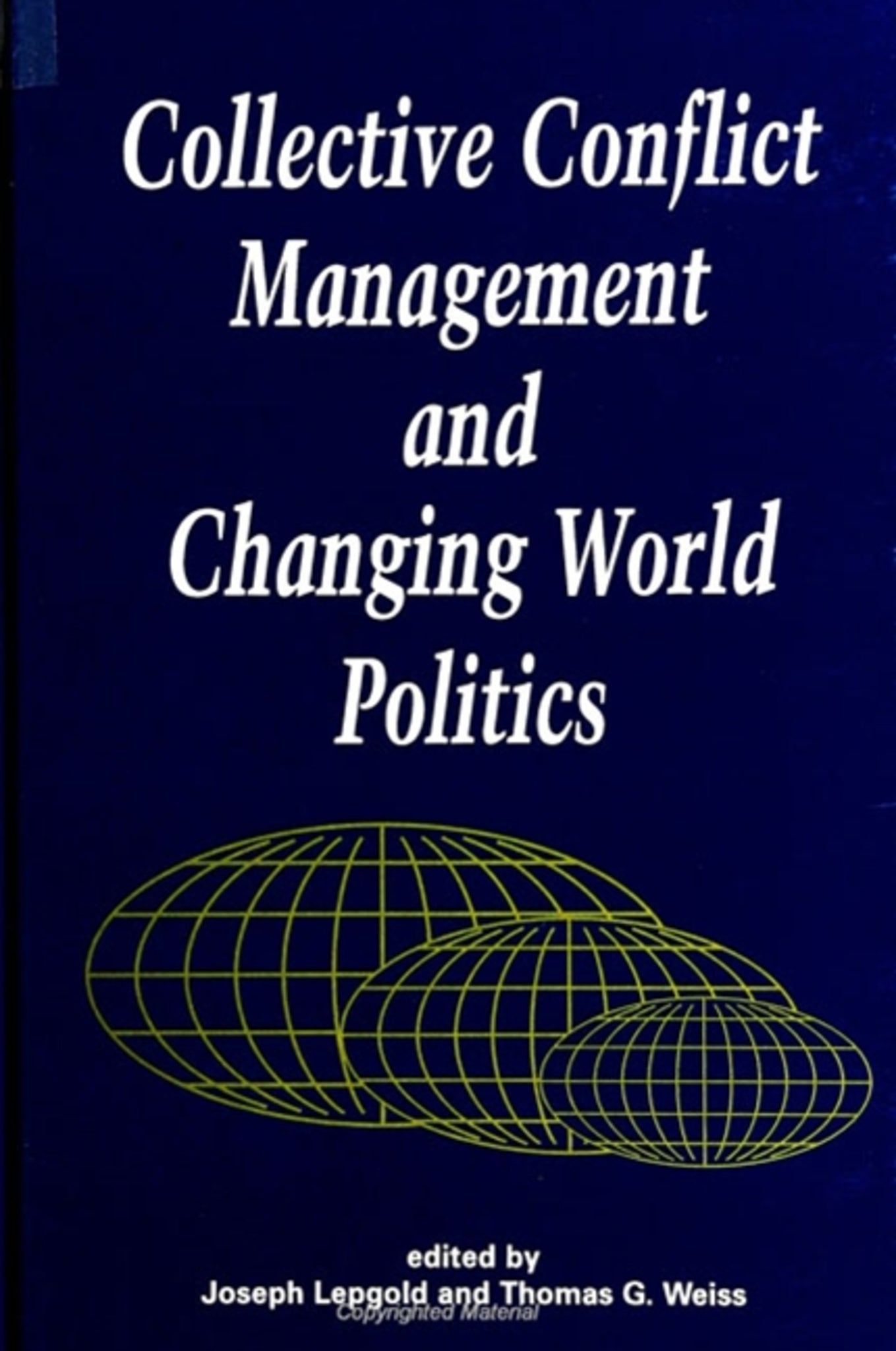We're sorry. An error has occurred
Please cancel or retry.
Collective Conflict Management and Changing World Politics

Some error occured while loading the Quick View. Please close the Quick View and try reloading the page.
Couldn't load pickup availability
- Format:
-
04 June 1998

Examines the prospects for collective management of international conflict, identifying the international and domestic conditions under which it will and will not tend to work and exploring whether the end of the Cold War will make its success more or less likely than before.
For several decades the debate over collective security-the idea that alliances are problematic and that all nations should pledge to come to the aid of any nation that is a victim of aggression-has been polarized. Collective Conflict Management and Changing World Politics probes the international and domestic conditions under which collective security tends to work or not, and questions if the end of the Cold War makes success more or less likely than before. The contributors conclude that collective conflict management is possible under specific situations, as they enumerate various domestic and international requisites that circumscribe such possibilities.


"This is an excellent collection. The material is of a uniformly high quality along three dimensions: good writing, identification of important empirical problems relating to collective security and peacekeeping (or, using the term the volume authors prefer, collective conflict management), and good, logical reasoning.
"There is no question but that the issue of collective conflict management is highly topical both for the academic study of international relations and for real-world foreign policy making, including and especially on the part of the United States." — Joseph M. Grieco, Duke University
"This book is very helpful in making sense of the potential for multilateral military action in the post Cold War world. In particular, the chapters on the UN, NATO and the American military were very well done and informative. They provided conceptual background and solid empirical study.
"I came away with a much better understanding of the future for collective conflict management—both the specific tools available to states and the international community and the international political context in which those actions might take place." — Elizabeth Kier, University of California, Berkeley
List of Tables and Figures
List of Abbreviations
Preface
Part One:
Collective Conflict Management: Theoretical and Historical Perspectives
1 Collective Conflict Management and Changing World Politics: An Overview
Joseph Lepgold and Thomas G. Weiss
2 Theoretical and Historical Perspectives on Collective Security: The Intellectual Roots of Contemporary Debates about Collective Conflict Management
Alan C. Lamborn
Part Two:
Collective Conflict Management: Military Operations and Political Interests
3 NATO's Post-Cold War Conflict Management Role
Joseph Lepgold
4 The Limits of Peacekeeping, Spheres of Influence, and the Future of the United Nations
Michael N. Barnett
5 Constraints on Adaptation in the American Military to Collective Conflict Management Missions
Robert B. McCalla
6 Somalia, Bosnia, and Haiti: What Went Right, What Went Wrong?
Andrew Bennett
Part Three:
Collective Conflict Management: The Humanitarian Impulse
7 Changing Norms of Sovereignty and Multilateral Intervention
Bruce Cronin
8 Military Intervention and the Organization of International Politics
Martha Finnemore
9 Collective Humanitarian Conflict Management: More or Less than the Millennium?
Thomas G. Weiss
About the Authors
Index



